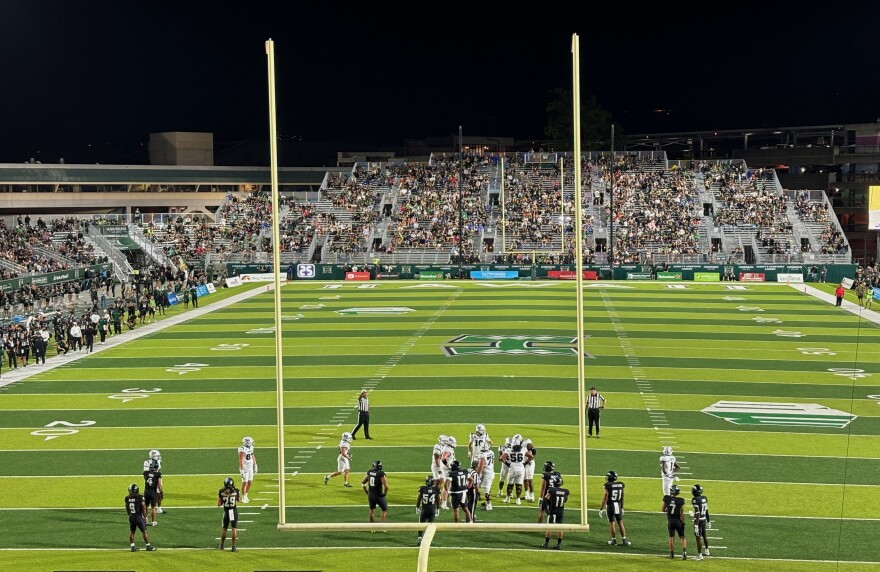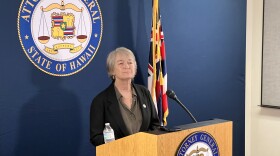Should taxpayer money be used to recruit and retain college athletes to play in Hawaiʻi?
In a public meeting with state legislators on Wednesday, University of Hawaiʻi officials said the school will ask for $5 million from the state to pay potential students to play at the university.
“I can tell you that it's already affected us in our recruiting cycles. We are going into our second and third recruiting cycles, and we've already lost six to 10 kids because we do not have the funding available currently to retain the type of kids that we need,” said Laura Beeman, head coach for the women’s basketball team at UH Mānoa, at the meeting.
UH football head coach Timmy Chang was also at the meeting, and said one of his current players found out he’s “worth $300,000 on the market right now."
While the player wants to continue playing for UH, the money he could make elsewhere is tempting, Chang said.
“He wants to be part of this culture, loves the guys that he's playing next to, but that's just the world we live in right now through NIL and just retaining our guys, recruiting our guys,” Chang said. “It's just part of what we're dealing with to maintain a roster and be at a level where we want to compete.”

NIL, or “name, image and likeness,” refers to a college athlete’s rights to endorsement deals. They can now use their reputation to earn money via third-party agreements — something they weren’t allowed to do until 2021.
The NCAA had restricted the practice, but following a lawsuit, the national governing body said it would allow NIL agreements.
But UH said schools now have to spend money on students directly if they want to be competitive in college sports.
State lawmakers are critical of the idea
UH football would get half of the $5 million the university is requesting, and Beeman is asking for a minimum of $450,000 for the women’s basketball team.
But beyond that information, UH officials wouldn’t break down exactly how the school would distribute funding for the 20 or so other teams in UH’s athletic program.
“We do have a plan. I just want to be respectful of the attorney-client privilege because we've been guided by outside counsel on how to do this with Title IX,” said Matt Elliott, UH Mānoa’s new athletic director.
Title IX bans discrimination based on sex in education programs and activities that receive federal funding.
State Sen. Donna Mercado Kim, chair of the Committee on Higher Education, replied, “Any dollars we give you is public money. You should be able to tell the public how it's going to be used."

Others were concerned about the funding request, especially as state funds are being tapped for pressing issues like aiding families impacted by the federal government shutdown.
Rep. Jeanné Kapela, a member of the House Committee on Higher Education, opposed using taxpayer money to pay out-of-state students to play at UH.
“That's not something that I want to fund. I do not want taxpayer money from Hawaiʻi Island, where I represent, going to people that aren't even from here at all, not even from a neighbor island, not even from the state. That's a concern for me,” Kapela said.
UH officials said they’re not aware of any other state using public money this way to pay college athletes.




